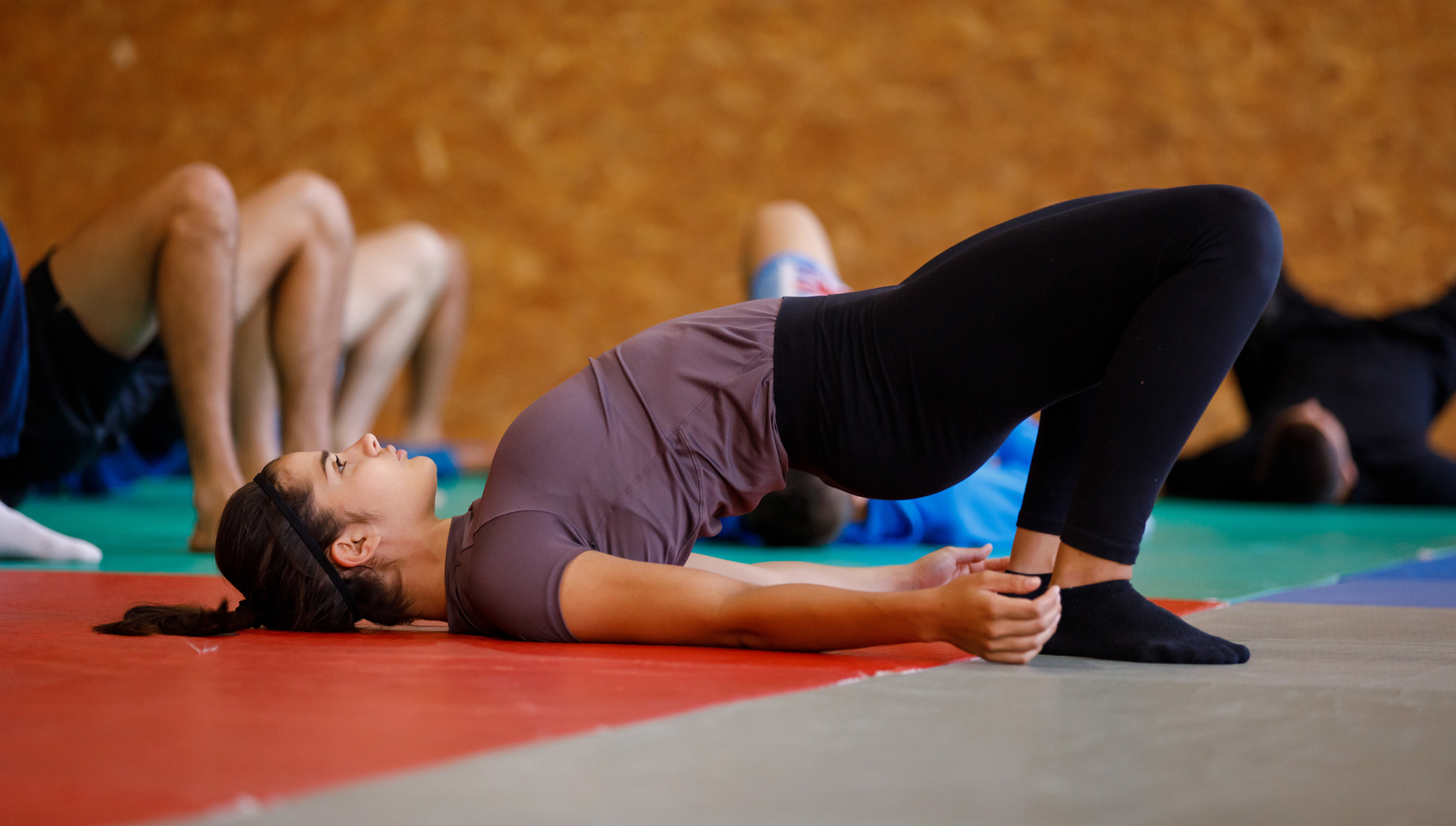The most common mistakes this teacher sees in Pilates classes and how to fix them to see results quicker
Get the most out of your time on the mat by avoiding these pitfalls

Working out from home is undoubtedly the most convenient way to exercise, but one downside is that there's no trainer there to correct your form, which can be a problem for certain styles of exercise or if you’re new to working out.
Pilates is a type of bodyweight training where form is particularly important. This is because it's made up of small, precise movements designed to improve muscle tone. Completing the movements as intended ensures you target the correct muscles.
To help you improve your at-home Pilates practice, I asked Pilates instructor and founder of Pilates At Your Desk Kerrie-Ann Bradley to share her top form tips.
"I think it's the responsibility of the teacher to ensure everyone has the correct form, but this isn't always possible when working out at home," says Bradley.
Below are a few common issues Bradley's noticed and how to fix them.
The mistake: Overusing the big glute muscles
The glutes—the three muscles surrounding the buttocks—are the biggest and most powerful muscles in the body, so working on them is important. But Bradley says it's common for people to overuse them during certain exercises.
"Squats are quite often taught badly," says Bradley. "Some teachers will get you to squeeze your bum at the top of a squat, which makes you use your glute maximus and your glute medius. In a Pilates squat, you want to use the bottom of the glute maximus muscle."
Start your week with achievable workout ideas, health tips and wellbeing advice in your inbox.
"Often, in daily life, people typically use the top and side parts of their glutes," says Bradley. "Pilates is about trying to find better foundations and moving from the parts of the body that don't usually work as hard."
The fix: Bradley recommends thinking about pressing through your heels when squatting. "This helps you to work the muscles underneath your bum and around your sit bones, like your hamstrings," says Bradley.
The mistake: Squeezing your stomach instead of engaging your core
You've probably heard a trainer telling you to squeeze your core before starting a movement, but, "squeezing your tummy won't necessarily engage your core," says Bradley.
The fix: Instead, she recommends using your breath to engage your core. "When you breathe out through your mouth you naturally drop your tummy and that's enough to engage it," says Bradley.
"You can have a sense of your belly button dropping down towards your spine," says Bradley, "but you're not grabbing it, gripping it and pulling it in, it's more of a gentle drop."
The mistake: Finding the correct alignment in a bridge pose
Bridges strengthen your glutes, core and back, and it's one of the most frequently used Pilates moves, but there are some common pitfalls to do with the position of your hips.
"When you do a bridge, make sure you push down through your heels to lift your hips from under your bottom," says Bradley. "You want to drop your chest a little bit so that the highest point is your hips and not your chest."
It's also important to keep your hips aligned with each other. "If you lift your head, check your hips are at the same height," says Bradley.
The fix: "If one is higher than the other, press down the ball of the big toe in the lower hip and that should bring them up to level," says Bradley.
If you want to put some of these tips into practice, try this Pilates workout for back pain or this Pilates for beginners workout.
Alice Porter is a freelance journalist covering lifestyle topics including health, fitness and wellness. She is particularly interested in women's health, strength training and fitness trends and writes for publications including Stylist Magazine, Refinery29, The Independent and Glamour Magazine. Like many other people, Alice's personal interest in combining HIIT training with strength work quickly turned into a CrossFit obsession and she trains at a box in south London. When she's not throwing weights around or attempting handstand push-ups, you can probably find her on long walks in nature, buried in a book or hopping on a flight to just about anywhere it will take her.